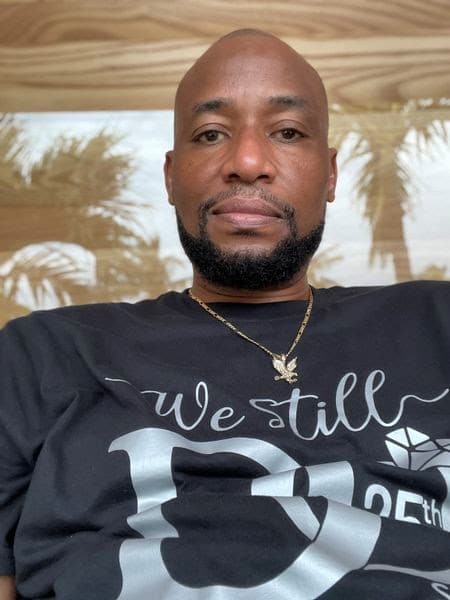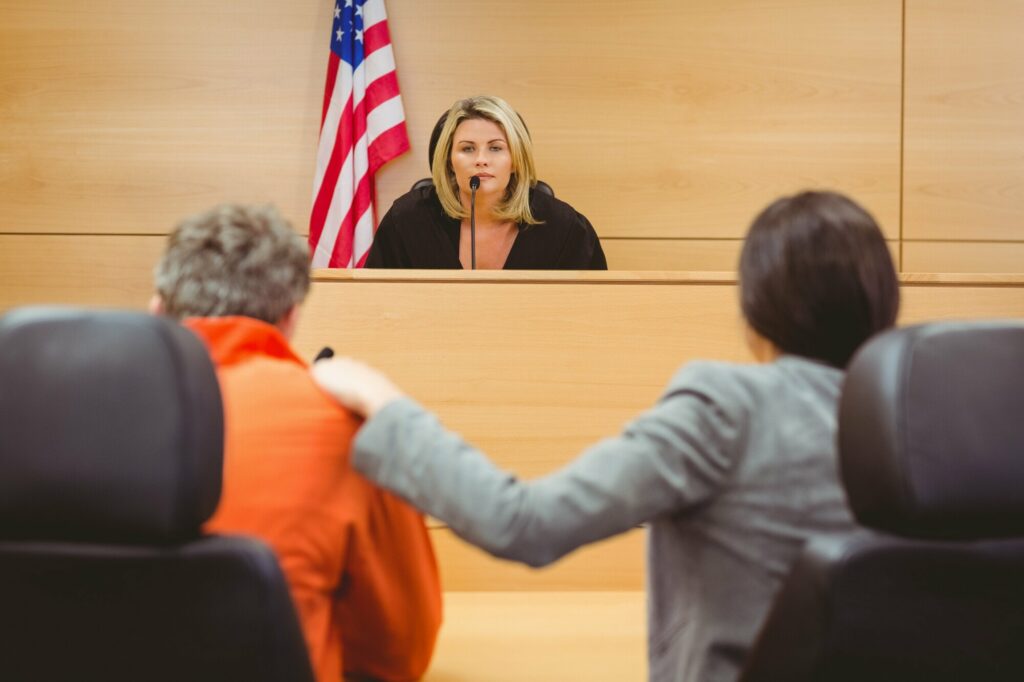
Exploring the Complexities of Immigration Violations in the USA
The United States is known for being a melting pot of cultures propagated by people from all walks of life and different nations. According to recent
 Kiara Aristide2023-10-135 star customer service. It was my first time dealing with Bail Bonds and they made it very easy for me. They properly walked me through the steps and clarified everything so there wouldn’t be any confusion and it went by very quick. Still thanking them till this day.
Kiara Aristide2023-10-135 star customer service. It was my first time dealing with Bail Bonds and they made it very easy for me. They properly walked me through the steps and clarified everything so there wouldn’t be any confusion and it went by very quick. Still thanking them till this day. Liv2023-09-26Isaak was very professional, quick, and responsive. Reasonable price as well. Would recommend to anyone needing a bondsman.
Liv2023-09-26Isaak was very professional, quick, and responsive. Reasonable price as well. Would recommend to anyone needing a bondsman. Arsanio Saad2023-08-14Quick response and so helpful the do everything that the case needs thanks guys, and special for Domenico.
Arsanio Saad2023-08-14Quick response and so helpful the do everything that the case needs thanks guys, and special for Domenico. Jeremy Bielat2023-08-11Had a wonderful experience with Isaak. His communication was on point from the get go. Amistad has very easy process to follow and Isaak took the extra time to explain everything clearly.
Jeremy Bielat2023-08-11Had a wonderful experience with Isaak. His communication was on point from the get go. Amistad has very easy process to follow and Isaak took the extra time to explain everything clearly. Lulane Chasteen2023-08-11Isaak was very helpful. He resolved the issue quickly and I recommend his business.
Lulane Chasteen2023-08-11Isaak was very helpful. He resolved the issue quickly and I recommend his business. Tommy Saunders2023-06-14Very professional and prompt, couldn't ask for better or easier service, thank you for everything most definitely recommend any that has to use a bondsman to give you a call, again thanks very much
Tommy Saunders2023-06-14Very professional and prompt, couldn't ask for better or easier service, thank you for everything most definitely recommend any that has to use a bondsman to give you a call, again thanks very much Lorenzo M2023-02-23The firm was professional and expedient. Within 30 minutes of completing the application, Isaak was at the detention center bailing my daughter out. Would definitely recommend this company.
Lorenzo M2023-02-23The firm was professional and expedient. Within 30 minutes of completing the application, Isaak was at the detention center bailing my daughter out. Would definitely recommend this company. Canales Fam2022-09-30What can I say about their services?When you are confused and don’t know where to go, please contact Amistad. We needed directions for Immigration Bonds and Mr. Ramiro and his co-workers took their time to explain the options and process. Once we were able to make a decision Amistad was there every step. From the 1st call to the last call, they were able to text everything if needed rapid response. I was so comfortable and confident that they will get the job right. They assure me the communication with the facility was quick and easy. Indeed it was. I was on the phone with them at 10am and everything was done back and forth with steps of what was needed till the end of our loved one to be release at 3pm. You want peace of mind? Just call Amistad. They will take care of everything and until the case is close you will be in contact with them. AMAZING COMPANY! To work with. Thank you so much, really appreciate it.
Canales Fam2022-09-30What can I say about their services?When you are confused and don’t know where to go, please contact Amistad. We needed directions for Immigration Bonds and Mr. Ramiro and his co-workers took their time to explain the options and process. Once we were able to make a decision Amistad was there every step. From the 1st call to the last call, they were able to text everything if needed rapid response. I was so comfortable and confident that they will get the job right. They assure me the communication with the facility was quick and easy. Indeed it was. I was on the phone with them at 10am and everything was done back and forth with steps of what was needed till the end of our loved one to be release at 3pm. You want peace of mind? Just call Amistad. They will take care of everything and until the case is close you will be in contact with them. AMAZING COMPANY! To work with. Thank you so much, really appreciate it. Natasha Navarro2022-06-08We used Amistad just yesterday for a family member. Their staff was very professional, organized and answered all our questions. They are really easy to communicate with and helped us stay calm during what is normally a very stressful time.
Natasha Navarro2022-06-08We used Amistad just yesterday for a family member. Their staff was very professional, organized and answered all our questions. They are really easy to communicate with and helped us stay calm during what is normally a very stressful time. Michael Duncan2022-02-15Isaak worked with me to bond out my loved one, despite me being in another city 100 miles away. Was able to complete everything via email. Very courteous, professional, and above all empathetic to the situation.Google rating score: 4.7 of 5, based on 93 reviews
Michael Duncan2022-02-15Isaak worked with me to bond out my loved one, despite me being in another city 100 miles away. Was able to complete everything via email. Very courteous, professional, and above all empathetic to the situation.Google rating score: 4.7 of 5, based on 93 reviews
The process of obtaining a bail bond may seem intimidating, especially if you’re unfamiliar with the justice system. For those dealing with law enforcement for the first time, getting in touch with a bail bondsman can feel unnerving.
Most of the people who call us for bail bond assistance are first-timers. When you reach out to us for help, we want to make sure that you don’t feel empty-handed. We walk you through the process and equip you with critical information in posting bail for your loved one.
Our friendly and dependable services make obtaining a bail bond much easier. Find our detailed, six-step process of how bail bonds work here.
Below we have outlined a few of the most commonly asked questions regarding the bail bonds process.
If you feel that you have additional questions that have not been covered here, we encourage you to give our Raleigh, NC office a call today. Amistad Bail Bonds is your most trusted Wake County bail bonds service and we are available 24/7 for you!


(843) 476-4747

(757) 942-2600

(804) 415-7023

(864) 203-0038
Lorem ipsum dolor sit amet, consectetur adipiscing elit. Ut elit tellus, luctus nec ullamcorper mattis, pulvinar dapibus leo.
Lorem ipsum dolor sit amet, consectetur adipiscing elit. Ut elit tellus, luctus nec ullamcorper mattis, pulvinar dapibus leo.
Lorem ipsum dolor sit amet, consectetur adipiscing elit. Ut elit tellus, luctus nec ullamcorper mattis, pulvinar dapibus leo.

When someone is accused of a crime, a bail amount may be set for the said person to be released from custody prior to their hearing date. Paying bail to the court guarantees that the defendant will appear in court as scheduled. Bail allows an arrested person to remain free until their conviction and ensures their presence at all pre-trial hearings.
Bail serves neither to punish a defendant nor raise money for the state. Rather, it functions as an agreement that secures a defendant’s presence at required legal proceedings.
Bail amounts are determined within about 48 hours after an arrest. Discussion and determination of the bail amount are made during what is called the bail bond hearing. During this hearing, a judge looks at a number of different aspects including the nature of the alleged crime committed and the flight risk they present and determines the amount of the bail.
Some courts settle bail by algorithm. For these jurisdictions, the court inputs pertinent information about the defendant (such as their age, current charges, criminal history, and record of failing to appear) and enter them into a program. In turn, the tool provides a score or recommendation that measures the tendency of a detainee to commit another crime or fail to show up at court. Judges then weigh these evaluations when granting a pre-trial release.
In general, the court system has standard amounts to be used in cases of specific crimes, which are called bail schedules. These suggest the bail amount for common crimes. However, the judge is not obliged to go by the standard amounts.


There are typically four ways someone can pay their bail. This includes:
If a bail cannot be paid in full, a bail bonds service will be required.
Release times vary due to several factors: the time it takes to book a defendant, the day of the week, the jail system’s backlog of arrests, pending releases during the time of bail, and more. But in general, release times could range from between twenty minutes to twenty-four hours.


In short, bail bonds services provide courts with the up front and full amount of bail for clients. For a bail bonds service to provide bail, however, the defendant must pay 15 percent of the full bail amount up front.
Once the bail bond is posted the defendant may be released from jail, on an assumption that upon their release they will still show up to court for their scheduled court hearings. Bail bonds services require an indemnitor
or co-signer to guarantee that if the defendant does not appear in court, that the bail amount will be paid in full.
Co-signing a bail bond comes with certain requirements. Qualifiers must be 25 years of age or older, have a valid and working checking account,
have worked in the same job for at least one year with a verifiable salary of at least $4,000 monthly.
The standard premium is 15 percent of the bond amount set by the court. Some individuals may qualify for a lower rate. Amistad is dedicated to providing the lowest rates in the area! We offer flexible payment options that allow you to make down payments as low as 5%.


Defendants can offer collateral in place of or in addition to their bail bond to secure the release of a detained loved one. While cases may vary, collateral is usually required for very high bail amounts. Collateral can be anything with equivalent resale value, such as property, jewelry, or stocks to pay for the bail amount. Often, people use the equity in a piece of real estate as collateral.
Defendants who are not present during pre-trial hearings after bailing out may face more than just a forfeited bond. If a defendant fails to appear in court there are usually court costs. These can be anything from $75 to hundreds of dollars.
In addition, if a defendant who has taken out a bail bond does not appear in court, a failure to appear or bench warrant will be issued for their arrest. When this happens, a defendant could face serious consequences, including additional charges, license suspension, and bail bond denial. Moreover, they will be required to pay back the bail amount in full, and the initial 15 percent they paid will go toward bond service and not the repayment of the bond amount.


The bail agency is responsible for seeing to it that the defendant appears in court. If they fail to appear, a warrant for their arrest may be issued.
Call us immediately so we can make sure you are protected. Communication is very important, and we’ll walk you through the steps of getting your loved one bonded out again. Our licensed agents will inform you if the second
arrest will have an impact on the court date.
Call (919) 790-6887 today to get your loved one out of jail; Amistad can help!
When you are in need, Amistad Bail Bonds is here. We offer quick, efficient and professional bail bonds services in the Wake County area, and we are determined to help you! We provide services for defendants charged with drug, traffic, DUI/ DWI, abuse, violence, prostitution, solicitation, felony, misdemeanor, and immigration-related offenses.

When you pay your money directly to the court, yes, it is refundable, but when you proceed through a bail bondsman, the fee is non-refundable.
Regardless of whether you are found guilty or not, if you show up to all your court dates, including the ones that include possible sentencing, you get your bail money back.
Yes, we can help you with the crests and troughs of bail bonds in North Carolina.

The United States is known for being a melting pot of cultures propagated by people from all walks of life and different nations. According to recent

Most people get lost in the whirlwind of legal troubles because they don’t make informed decisions promptly. Dealing with arrests is no different. Nobody thinks

Being arrested for anything might be overwhelming, but being arrested for a felony can be life-altering. In Wake County, many people get in legal trouble

Okay, if you have to name some of the most frequent crimes in North Carolina, shoplifting would probably top the list. Do you have any

According to recent research, More than 10 million arrests are made each year in the United States. Navigating the legal landscape can be daunting, especially when

God forbid that it should never happen, but imagine someone you care deeply about being entangled in the legal system due to the charges of
